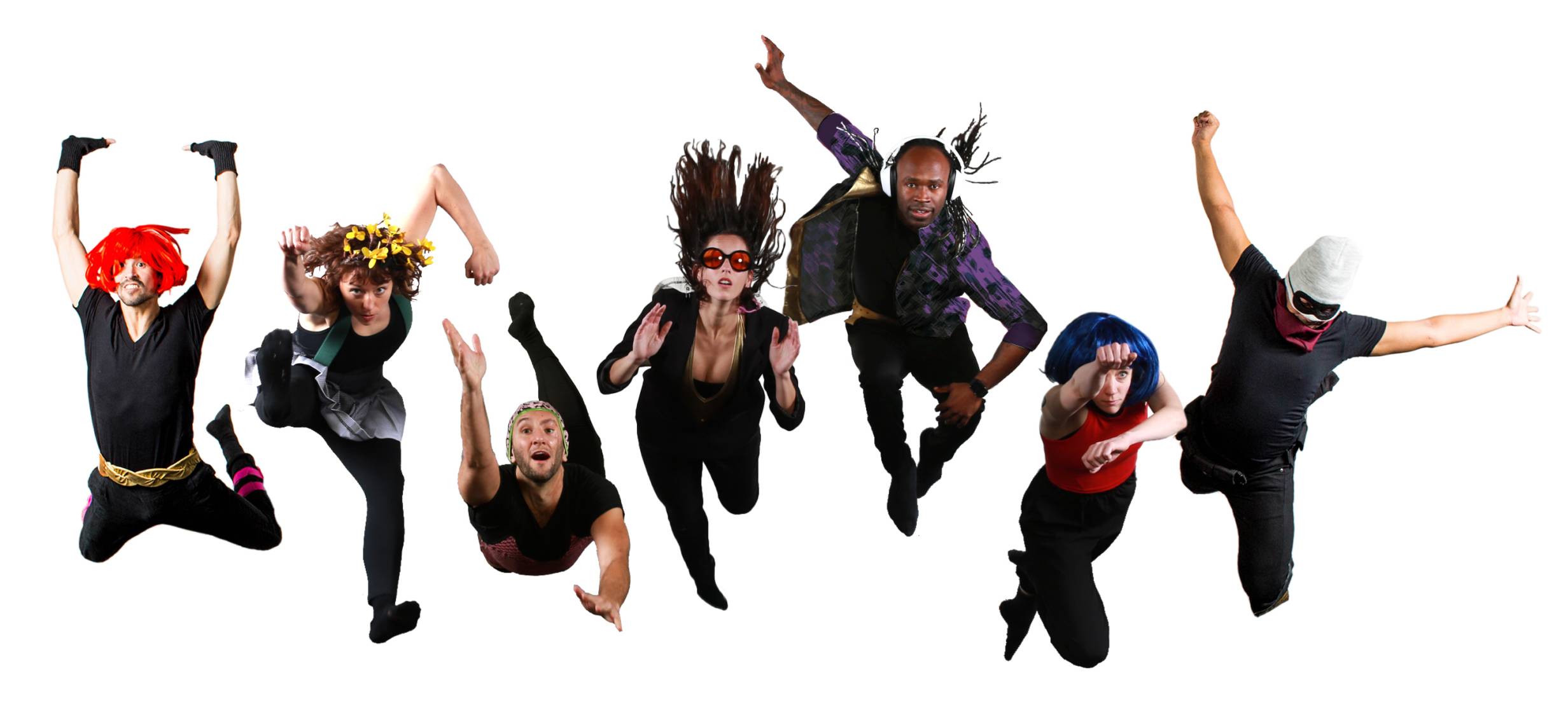With all of the superhero movies, TV shows, and other media flying and fighting in our faces, it’s pretty easy to become immune to the charms of the spandex-clad crimefighters of the genre. However, if you’re in the mood for something completely different from the standard DC and Marvel fare, Lucky Plush Productions has got something for you.

The Chicago-based dance company presents Trip the Light Fantastic: The Making of SuperStrip, a theatrical dance production following a group of washed-up superheroes working to reinvent themselves through the creation of a non-profit think tank for do-gooders. This is definitely not your typical summer blockbuster about the forces of good and evil.
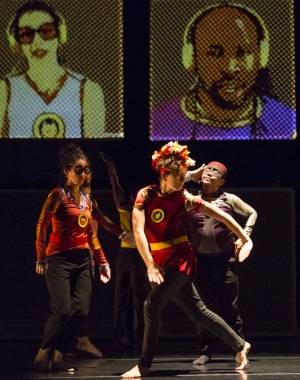 Described in the official press release as an evening-length work that combines comic book graphics, sound effects, and immersive video, SuperStrip is a unique experience wherein dance theater and animated graphic novels intertwine. The use of the medium of theater allows for SuperStrip to both critique the superhero genre as a whole, as well as address ways in which a common, everyday people can set about saving the world on their own.
Described in the official press release as an evening-length work that combines comic book graphics, sound effects, and immersive video, SuperStrip is a unique experience wherein dance theater and animated graphic novels intertwine. The use of the medium of theater allows for SuperStrip to both critique the superhero genre as a whole, as well as address ways in which a common, everyday people can set about saving the world on their own.
Playing on the common superhero tropes of saving humanity, SuperStrip’s characters ogranize themselves into a thinktank of do-gooders. However, they soon find the organization falling apart due to their lack of of a central mission and brand. The heroes soon discover that facing real-world, societal evil is much more challenging than their superpowered foes ever were.
Stemming from Artistic Director Julia Rhodes’ own experiences with nonprofits, SuperStrip takes a look at what she calls “the tragicomic circularity of organizational efforts in order to simply do good.”
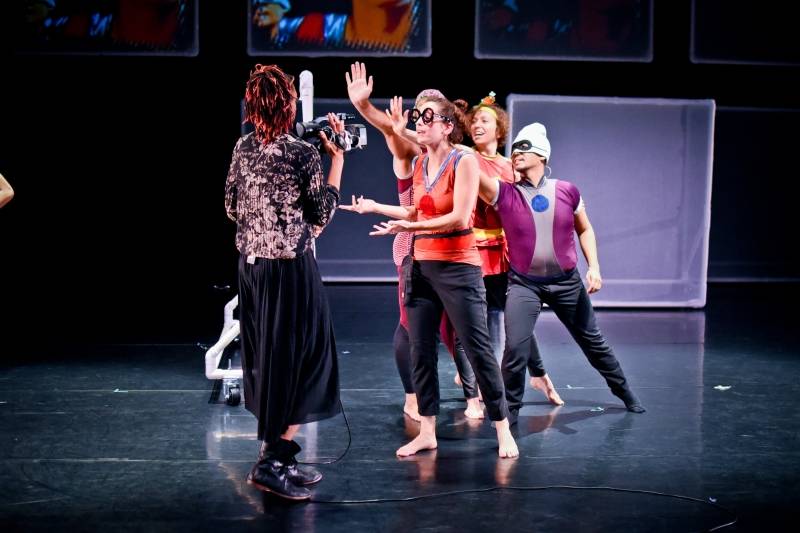
The social-justice aspects brought to the show by Rhodes do not act as backdrops. Rather, multiple justice movements are the main motivations and missions for each of the characters, displaying the socially-relevant storytelling that Lucky Plush is known for.
Characters include Springster, a hero with the power of enhanced jumping who hopes to use his abilities to advocate for free migration and cultural competency, and Rapid Glitch, whose ability to amplify and mute sound at will causes him to commit to the cause of equalizing factors that otherwise lead to racial and socio-economic inequalities. Other supers, such as Sparky Lightstep, The Big Liberjinski, Professor Visone, and Mmm fight for eco-awareness, cultural beautification, education initiatives, and empowerment of children respectively.
Even while being superheroes taking on “everyday” problems, each character still must overcome the challenge of being an individual fighter for a cause that is up against a stifling and overpowered social system. Superpowers alone do little to change hearts and minds.
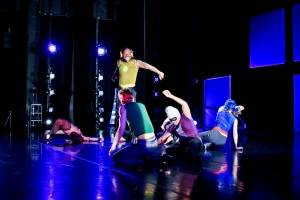 The political and social action that enter into the superhero narrative make it as much of a unique production as does its dance-theater aspect. Lucky Plush’s signature hybrid brand of high-level dance and theater have a lot of opportunity to be displayed throughout the performance.
The political and social action that enter into the superhero narrative make it as much of a unique production as does its dance-theater aspect. Lucky Plush’s signature hybrid brand of high-level dance and theater have a lot of opportunity to be displayed throughout the performance.
Recently, the company has received the MacArthur Award for Creative and Effective Institutions, adding to Lucky Plush’s list of awards including those from the National Performance Network, National Endowment for Arts, and the Metlife Foundation. SuperStrip was originally commissioned by Chicago’s Harris Theater for Music and Dance, and additionally receives creative support from Krannert Center for the Performing Arts, where it has been workshopped for past year.
Rhodes cites SuperStrip’s inspiration came from contemporary graphic novels by writers such as Emily Carroll, Alison Bechdel, Fabien Vehlmann and Kerascoët, as well as from pulp superhero magazines.
“I started to draw parallels between the fictional realms of superhero leagues and the every-day dramas of real life do-gooders, which hit close to home with my experience running a nonprofit organization,” she says in the director’s notes for the production. “While we had great fun riffing on the exhausting tropes and circularity of meeting culture, we drew great inspiration from our collective efforts, and the efforts of people everywhere, to make the biggest impact with limited resources in order to simply do good.”
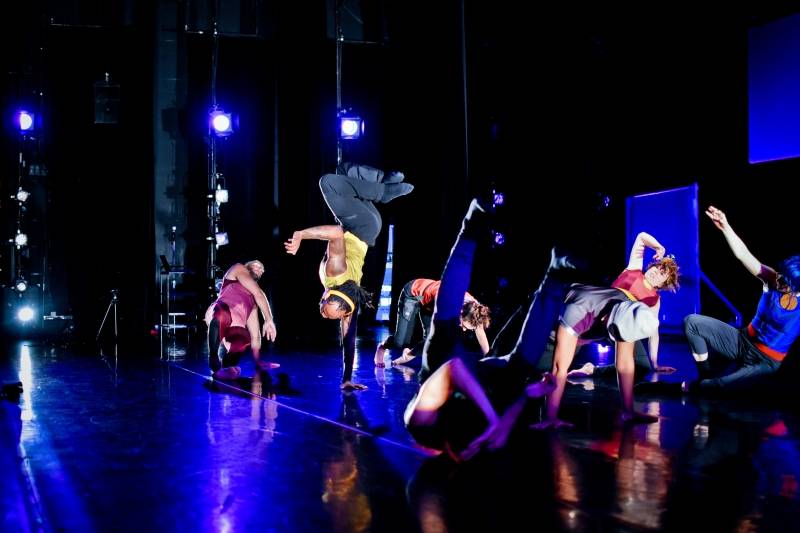
Choreography is provided by Rhodes, who collaborated with composer Michael Caskey, Visual Designer Liviu Pasare, lighting designer Kevin Rechner, and sound designer Mikhail Fiksel. Kim Goldman acts as managing director and the current ensemble includes Michael Rodriguez Cintra, Jeff Ewing, Daniel Gibson, Elizabeth Luse, Jamy Meek, Melinda Jean Myers, and Meghann Wilkinson. You can take a sneak peek at their vimeo channel.
Trip the Light Fantastic: The Making of SuperStrip opens on Thursday Oct. 27 at 7:30 p.m. at KCPA’s Cowell Playhouse. Tickets can be reserved online.








